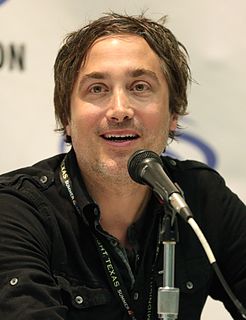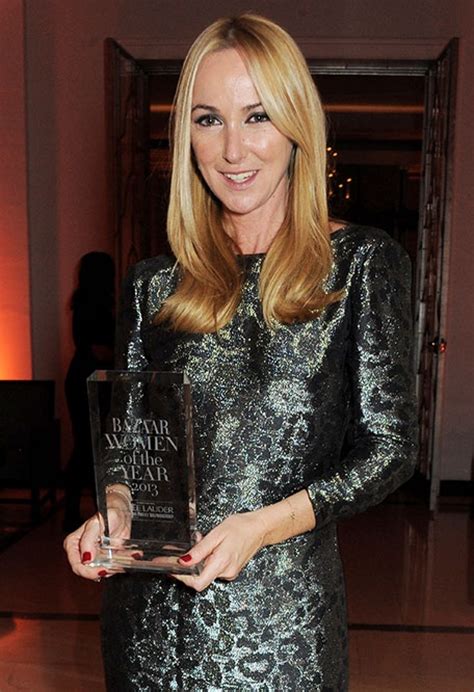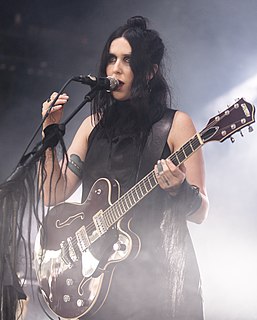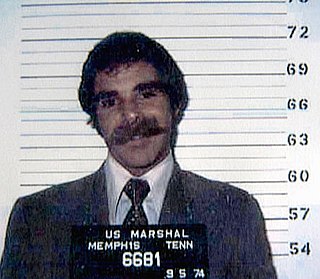Top 750 Reviews Quotes & Sayings - Page 13
Explore popular Reviews quotes.
Last updated on November 9, 2024.
The government ought to help out, because the average citizen can't go out and be doing reviews of the scientific literature. And focus on the processes that have low side effects and good long-term outcomes. Right now you're going to find those in the psychosocial area, in the therapy area, in the empirically supported treatments such as ACT or cognitive behavior therapy, behavior therapy. And go there first rather than going to the pill bottle as if it's going to be the end of your journey. Very often it's only going to help, and even only to a minor degree, and more is going to be needed.
I'd love to work on something that gets some type of critical respect. This business is sometimes so brutal - you work on something for months and really feel like the project is good and you're doing the best work you can, and then it just gets hammered by critics. It's such a bummer sometimes, because everything seems to build up to the release and a couple of bad reviews can make it seem like it was all a waste, which you know it wasn't.
What can you think when one review says "this album is brilliant, and all the songs flow into the utmost brilliant song 'The Upside-Down Cross'" then another review says "this album is brilliant, except for that horrible and pointless song 'The Upside-Down Cross'," and another review will say "Jeffrey really sounds confident and relaxed on this new album", the next reviewer says "Jeffrey sounds more depressed and awful than ever" - these totally contrasting reviews happen all the time!
A principal aim of education is to give students a taste for literature, for the books of life and power, and to accomplish this, it is necessary that their minds be held aloof from the babblement and discussions of the hour, that they may accustom themselves to take interest in the words and deeds of the greatest men, and so make themselves able and worthy to shape a larger and nobler future; but if their hours of leisure are spent over journals and reviews, they will, in later years, become the helpless victims of the newspaper habit.
I try not to read reviews, but if it's a really important review or somebody sends it to me, I'll read it. It's really interesting when you read a review of yourself, you see this weird reflected image - it's like looking a funhouse mirror. Like, "It's sort of me, but is my neck really that elongated?" Sometimes it's vaguely embarrassing what people think of you. When I was in Italy doing this press-interview day, this guy asked me, "Are you a tortured soul?" It's embarrassing to have somebody think you're a tortured soul, or that you think of yourself as a tortured soul.
I would be wonderful with a 100-year moratorium on literature talk, if you shut down all literature departments, close the book reviews, ban the critics. The readers should be alone with the books, and if anyone dared to say anything about them, they would be shot or imprisoned right on the spot. Yes, shot. A 100-year moratorium on insufferable literary talk. You should let people fight with the books on their own and rediscover what they are and what they are not. Anything other than this talk.
I am never much interested in the effects of what I write....I seldom read with any attention the reviews of my...books. Two times out of three I know something about the reviewer, and in very few cases have I any respect for his judgments. Thus his praise, if he praises me, leaves me unmoved. I can't recall any review that has even influenced me in the slightest. I live in sort of a vacuum, and I suspect that most other writers do, too. It is hard to imagine one of the great ones paying any serious attention to contemporary opinion.
I get most of my reviews through e-mail, and then I go and read it and go on message boards to check it out. I want to see what's out there and to better estimate my position. I'm definitely happy that a lot of people are voting positively for Postal - especially the hundreds and hundreds who actually saw it. Still, there are a lot of people who didn't see it who are giving me only one point out of 10 because they hate me, and it has nothing to do with the movie.
I read reviews every time. I read them all. Sometimes they can be very constructive, sometimes not, but it's always interesting to see the opinion of others on what you are doing. Sometimes I am very furious, but I will never say to a journalist, "Please don't come back to the next show." Never. Because I think that's a very stupid attitude. I am very happy when I see the results of the company and when I see people wearing my clothes or my accessories. I think this is the best answer to criticism.
Your agent or manager tells you. They go, "You're out. They're gonna get a new guy." But then I didn't feel bad. I didn't take it personally. Not that I'm competitive at all. But you have pride in that, you know? You want your ratings to be good. But now that I'm 62, I don't really care about the ratings. I don't care about the reviews. I care about the work, and I care about the people that I'm working with, and I try to make the experience for them and myself as good as it can be.
One of the things I always underscore when I teach criticism is that young critics, or would be critics, frequently have this illusion that if they write about music they're somehow part of music, or if they write about movies they're part of movies, or of they write about theater they're part of theater, or write about literature. Writing is a part of literature, we belong the species of literature. If you add all the music reviews together that have ever been written, they don't create two notes of music.
Literary men now routinely tell their readers about their divorces. One literary man who reviews books wrote, in reviewing a study of Ruskin, that he had never read a book by Ruskin but that the study confirmed him in his belief that he didn't want to read a book by Ruskin. This man very often writes about his family life.
If politically infused music is denied airplay, music reviews or festival stage time because it is considered "politics" rather than "art", then there will be no music left to ban. It will never reach the surface anyway, not to the larger audience. I believe that there is a high degree of censorship in the west, most importantly in the form of self-censorship among musicians themselves. This is why what you hear on the radio is - increasingly often - pure and toothless entertainment. Almost by definition, there's nothing left in pop music worth banning.
But having said that, regardless to what reviews come out whatever, I like love the movie. I think it's great, and so people can think what they think about it, but I'm very happy with what we did. I'm really proud of whatever all the actors what we all kind of accomplished and so regardless of how well it does or whatever I'm very excited about it and I think we set out to do the thing and accomplished what we wanted to do. Our goal was met, so yeah.
If nobody talks about books, if they are not discussed or somehow contended with, literature ceases to be a conversation, ceases to be dynamic. Most of all, it ceases to be intimate. It degenerates into a monologue or a mutter. An unreviewed book is a struck bell that gives no resonance. Without reviews, literature would be oddly mute in spite of all those words on all those pages of all those books. Reviewing makes of reading a participant sport, not a spectator sport.
I read the reviews sometimes, but I don't let it really affect the next album because, for me, when I approach an album, it's usually coming to me pretty naturally. It's not like I set out, like, "Okay, I'm going to write an album this month." It's more like I'm just always writing songs and eventually I start to realize that a group of songs sort of fits together, and I go from there in putting together the album and themes and artwork and things like that.
There are 500 reasons I write for children.... Children read books, not reviews. They don't give a hoot about the critics.... They don't read to free themselves of guilt, to quench their thirst for rebellion, or to get rid of alienation. They still believe in God, the family, angels, devils, witches, goblins, logic, clarity, punctuation, and other such obsolete stuff.... They don't expect their beloved writer to redeem humanity. Young as they are, they know that it is not in his power. Only the adults have such childish illusions.
The idea of some kind of objectively constant, universal literary value is seductive. It feels real. It feels like a stone cold fact that In Search of Lost Time, by Marcel Proust, is better than A Shore Thing, by Snooki. And it may be; Snooki definitely has more one-star reviews on Amazon. But if literary value is real, no one seems to be able to locate it or define it very well. We're increasingly adrift in a grey void of aesthetic relativism.
Well, Led Zeppelin IV! That's it really. I'll tell you why the album had no title - because we were so fed up with the reactions to the third album, that people couldn't understand why that record wasn't a direct continuation of the second album. And then people said we were a hype and all, which was the furthest thing from what we were. So we just said, `let's put out an album with no title at all!' That way, either people like it or they don't... but we still got bad reviews!
"On Script" is one of my favorite songs I've ever written. I'd just been jamming on it one day, and again I was struggling with lyrics. I'm still figuring out what it's about. I've seen a couple of reviews that are like, "It's about the monotony of playing the same songs every night," because I say, "On script every night/Like a well-rehearsed stage show." It's not about that at all, but I find that funny, how people project what they think about me, or songwriters in general.
Even the favorite reviews, the audience response is the movie is too slow, deliberately slow. But for the Chinese audience, the biggest complaint is it happens too quick. I think the historical background that build into our genes is different. American people has never been occupied. The deep sadness and sentimentality, the cultural background that relates to melodrama that we relate to and grow up with, the propaganda, I didn't imagine the difference is so big. It's a very interesting cultural phenomenon.
Basically, the prosecutor who led case against me and that administration were trying to say that an actor can be held responsible for his acting, thousands of miles away from where he did the acting. The analogy would be if an artist painted a nude painting in New York City, and it was met with accolades and great reviews. And suddenly, somebody from Texas bought it and put it in their shoe store and it was found to be obscene in Texas, the artist in New York is responsible, and goes to jail because it's obscene in Texas.
There's a certain kind of conversation you have from time to time at parties in New York about a new book. The word "banal" sometimes rears its by-now banal head; you say "underedited," I say "derivative." The conversation goes around and around various literary criticisms, and by the time it moves on one thing is clear: No one read the book; we just read the reviews.
I think a lot of people don't take you seriously if they hear it's a video-game-based movie, and a lot of press people don't write about you. With BloodRayne, a lot of serious newspaper people didn't actually even see the movie. They went online to see other reviews, and then wrote their own. I think comic-book-based movies have a better image. We see it with 300, Sin City, Spider-Man - they are A-list features, and video-game movies are B-list.
Books are just dead words on paper and it is the readers who bring the stories alive. Previously, writers wrote a book and sent it out into the world. A couple of months after publication letters from readers might arrive. And, leaving aside the professional reviews, it is really the reader's opinions that the writer needs. They vote for a book - and a writer - with their hard earned cash every time they go into a bookstore (or online - that's my age showing!) and buy a book.
'Princess' is a good word, as is 'girlish', 'pixie-like' and all these other things. I personally find it a bit boring, it's all been done before. The amount of times you read reviews of bands and it's an all-girl four-piece, and they talk about what the women are wearing... you'll never read a review that's like: "Male singer Thom Yorke, who was dressed in a white t-shirt and jeans..." You would never read that about a man.
Sometimes Joyce is hilarious. I read Finnegans Wake after graduate school and I had the great good fortune of reading it without any help. I don't know if I read it right, but it was hilarious! I laughed constantly! I didn't know what was going on for whole blocks but it didn't matter because I wasn't going to be graded on it. I think the reason why everyone still has so much fun with Shakespeare is because he didn't have any literary critic. He was just doing it; and there were no reviews except for people throwing stuff on stage. He could just do it.
From the very beginning, all of my films have divided the critics. Some have thought them wonderful, and others have found very little good to say. But subsequent critical opinion has always resulted in a very remarkable shift to the favorable. In one instance, the same critic who originally rapped the film has several years later put it on an all-time best list. But of course, the lasting and ultimately most important reputation of a film is not based on reviews, but on what, if anything, people say about it over the years, and on how much affection for it they have.
I find it's very confusing when one critic tells you one thing and one tells you something completely different. Unless all the critics agree on parts of the play that just didn't work. I have stopped reading reviews, because I find writing is all about courage. You must have courage when you start writing a play and you cannot have the voice - you must write things out. You cannot have the voice of a critic telling you, "That didn't work in that play, you cannot make it work in another play." Every time you do a production, it's an experimentation.
It's not a matter of whether the reviews of your books are good or bad, it's about being taken seriously, both as a woman writer and as a writer of color. Also, it worries me when people point to a couple of women writers or writers of color who get some attention - and I am sometimes pulled into that category - to prove that others are getting a fair shot. It's like those people who keep saying that racism no longer exists in this country because Barack Obama was a President of the United States.




























